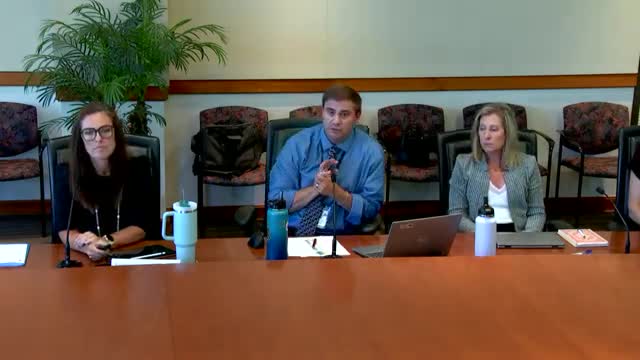Colorado Human Services Faces Budget Crisis Amid Rising Demand
August 28, 2024 | Larimer County, Colorado
This article was created by AI summarizing key points discussed. AI makes mistakes, so for full details and context, please refer to the video of the full meeting. Please report any errors so we can fix them. Report an error »

In a recent government meeting, officials discussed pressing budgetary concerns affecting various human services programs in Colorado, highlighting significant overspending and the need for strategic funding solutions.
The Colorado Department of Human Services (CDHS) is grappling with financial challenges across multiple sectors, particularly in adult protective services (APS) and child welfare. APS has reported a staggering 146% overspend for the last fiscal year, driven by increasing case loads and a lack of administrative funding flexibility. The program's financial strain is compounded by the expiration of COVID-related funding, which previously helped mitigate overspending.
Officials emphasized the urgency of addressing these budgetary issues, noting that the state has been asked to submit budget-neutral proposals, limiting the potential for relief. The situation is echoed in child welfare, where for the first time in nearly a decade, the state has overspent by 9%. Rising costs associated with foster care and staffing have contributed to this trend, prompting concerns about the sustainability of current funding mechanisms.
The child care assistance program is also facing a freeze due to a significant loss of COVID relief funds, with officials estimating a need for an additional $1.6 million to lift the freeze and address a growing waiting list. The anticipated federal changes to funding rules could further complicate the situation, potentially reducing the number of families served by half without additional financial support.
In response to these challenges, county officials are advocating for increased funding and flexibility in budget allocations. They are also exploring partnerships and alternative resources to meet the rising demand for services. The meeting underscored a collective concern among counties about the sustainability of human services funding, with many officials calling for urgent action to prevent further deterioration of essential services for vulnerable populations.
As the state prepares for upcoming budget discussions, the need for a comprehensive strategy to address these financial challenges remains critical.
The Colorado Department of Human Services (CDHS) is grappling with financial challenges across multiple sectors, particularly in adult protective services (APS) and child welfare. APS has reported a staggering 146% overspend for the last fiscal year, driven by increasing case loads and a lack of administrative funding flexibility. The program's financial strain is compounded by the expiration of COVID-related funding, which previously helped mitigate overspending.
Officials emphasized the urgency of addressing these budgetary issues, noting that the state has been asked to submit budget-neutral proposals, limiting the potential for relief. The situation is echoed in child welfare, where for the first time in nearly a decade, the state has overspent by 9%. Rising costs associated with foster care and staffing have contributed to this trend, prompting concerns about the sustainability of current funding mechanisms.
The child care assistance program is also facing a freeze due to a significant loss of COVID relief funds, with officials estimating a need for an additional $1.6 million to lift the freeze and address a growing waiting list. The anticipated federal changes to funding rules could further complicate the situation, potentially reducing the number of families served by half without additional financial support.
In response to these challenges, county officials are advocating for increased funding and flexibility in budget allocations. They are also exploring partnerships and alternative resources to meet the rising demand for services. The meeting underscored a collective concern among counties about the sustainability of human services funding, with many officials calling for urgent action to prevent further deterioration of essential services for vulnerable populations.
As the state prepares for upcoming budget discussions, the need for a comprehensive strategy to address these financial challenges remains critical.
View the Full Meeting & All Its Details
This article offers just a summary. Unlock complete video, transcripts, and insights as a Founder Member.
✓
Watch full, unedited meeting videos
✓
Search every word spoken in unlimited transcripts
✓
AI summaries & real-time alerts (all government levels)
✓
Permanent access to expanding government content
30-day money-back guarantee

